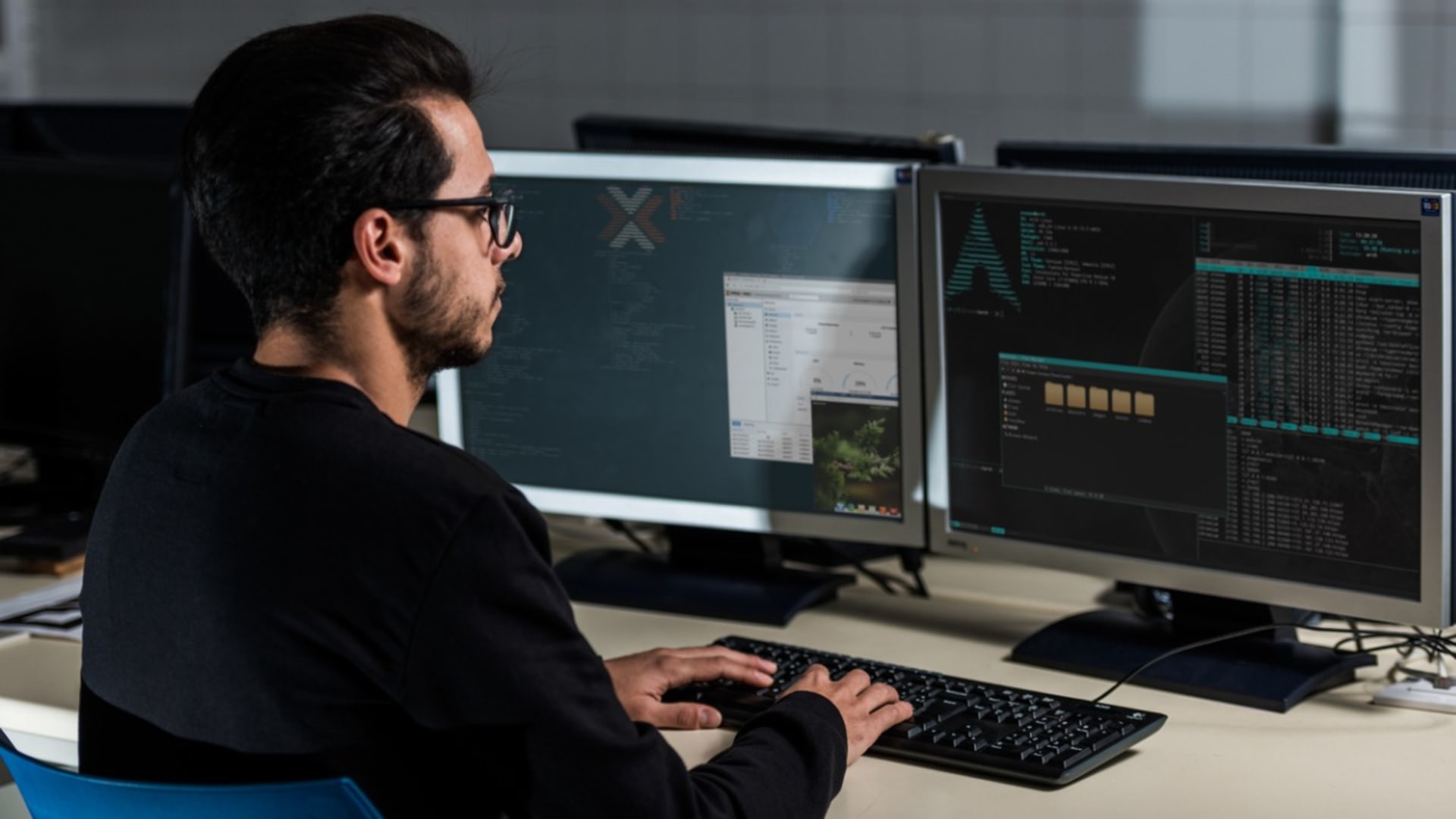Developed by Linux Torvalds in 1991, Linux is an operating system similar to Windows or macOS. This means it provides services for applications while managing computer hardware and acting as an interface between the software and hardware. While originally developed to simply act as an operating system, Linux is now a go-to platform for computer-savvy individuals to run desktops, servers, and embedded systems.
Thanks to its modular design, Linux offers many variations and distributions with a “Kernel” as its core. This Kernel helps schedule applications and processes, manages basic devices, oversees services related to file systems, and handles network access. Thanks to this customizability and the system’s many advantages, nearly every business vertical utilizes Linux today in technologies ranging from supercomputers to smart products.
Developers specializing in Linux are typically Swiss army knives of the development community: they don’t just know how to use the programming languages required to handle Linux itself but also its applications. If you want to hire Linux developers, here’s what to look for.
Hiring Guide
Although macOS and Windows are the most common operating systems, Linux is constantly in demand in the professional world. In fact, it’s actually one of the most sought-after open-source platforms by developers and companies alike. Its versatility, security, speed, and free public access as an open-source operating system make it one of the most active developer communities.
Companies and individuals alike benefit greatly from using Linux. The majority of web servers actually use Linux or a Linux environment. It’s very common as the core of a development environment while helping devs simulate real-world usage when testing apps. Linux acts as an excellent resource for testing code before deployment into a real-world production environment.
Part of what makes Linux a go-to choice for so many developers is its open-source availability. Anyone and everyone has the ability to download the source operating system code, modify it, and then distribute the new version they created. With the code readily available for anyone who wants it, this means it’s constantly peer-reviewed and vetted by an enormous Linux expert community online.
As developers, those specializing in Linux offer companies many skills in addition to knowing how to manage the operating system itself. Linux is an incredibly powerful and flexible platform, which means that users can do much more with it than other operating systems. This means that devs with a speciality in Linux are typically not only creative with their customizations but also creative with getting things to work.
The creative mind of Linux developers also means they’re curious by nature. They don’t only want to know how the platform works but also strive for a deeper understanding of its inner workings. Linux users typically understand that the operating system is more like a collection of pieces that work together by design, which makes them not only better at understanding how hardware and software work together, but make for the backbone of a great developer.
Linux developers also have a deep understanding of installing applications from the source, which means they’re experts in viewing source code and understanding package layouts. By the nature of the OS, Linux programmers also master software dependencies at a much more detailed level than most. Typically, developers specializing in Linux also possess strong problem solving skills as Linux offers all the tools required for troubleshooting problems.
Linux Interview Questions
What are the basic components of a Linux operating system?
- Kernel – Most regard the Kernel as the core aspect of a Linux operating system as it’s responsible for all of the major activities within the system. Linux Kernel is open-source, free software that offers the capability to manage hardware resources for its users. It consists of modules that directly interact with the underlying hardware while the Kernel acts as the brain of the system.
- System Library – System libraries implement most of the functionalities of the operating system. When application programs access the Kernel’s features, these libraries act as a special function.
- System Utility – These programs perform individual-level, specialized tasks.
What are the top features of the Linux operating system?
- The Linux Kernel and apps aren’t restricted by any hardware platform, which means the operating system is installable anywhere and considered portable.
- It allows for multitasking by serving many functions simultaneously.
- The operating system provides a hierarchical file system.
- It provides security in the forms of authorization, encryption, and authentication.
- It offers its own app support and customized keyboards.
- Linux supports multiple users accessing one system resource via different operation terminals.
What’s LILO and what kind of advantage does it offer?
LILO is the abbreviated term for Linux Loader, which is the boot loader for the operating system to fully load it onto the main memory to begin operations. LILO lives inside of the Master Boot Record (MBR) and the bootloader manages a dual boot. LILO helps developers quickly boot-up Linux upon installation of the MBR. However, not all computers have the ability to tolerate MBR modification.
Job Description
We are searching for a highly experienced Linux developer to assist in the design, coding, and maintenance of our application systems. The right applicant will have system administration skills in Linux and Unix servers in addition to file system administration and access management experience. They will be involved in the securing and maintenance of servers, troubleshoot applications with the dev team, and write/manage full systems.
Responsibilities
- Propose, code, and implement system enhancements and fixes
- Perform testing and certification of Linux system updates
- Work with hardware and software development teams for requirements defining of new projects
- Design and implement intuitive user interfaces
- Secure and maintain servers in both testing and production environments
- Offer involvement in developing and overseeing replication, backup, and fail strategies
Skills and Qualifications
- Bachelor’s Degree in Computer Science, Computer Engineering, or similar field
- 5+ years of experience in Linux operating systems
- C/C++ programming language expertise
- Familiarity with UNIX, Pearl, Ansible scripting
- A strong knowledge base of Red Hat, Veritas, and HACMP clusters
- Excellent communication and analytical skills
- Solid understanding of design patterns and frameworks









